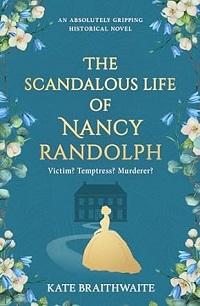The Lodger
Sometimes one can judge a book by its cover. The content of Louisa Treger’s debut is just as exquisitely formed as the luminous jacket art. Dorothy Richardson was an early 20th-century literary star whose innovative stream-of-consciousness style influenced countless others but who is essentially forgotten today – undeservedly so, per Treger, and her thesis is convincing. Tracing Dorothy’s journey to self-recognition, she movingly illustrates both the price and rewards of independence.
In 1906, Dorothy visits her old school friend, Amy Catherine, now married and living with her husband, author H. G. “Bertie” Wells, on the Kentish coast. At their home, Dorothy can temporarily forget her threadbare existence at a boardinghouse in London’s Bloomsbury neighborhood and her dreary secretarial job. Amid this intellectual company, Dorothy feels overwhelmed. Here her conversation is hesitant, but she and the charismatic Bertie clearly share an attraction – which she resists at first but eventually succumbs to, after hearing they supposedly have an open marriage. Then the arrival of a new lodger at the boardinghouse, vibrant suffragette Veronica Leslie-Jones, throws Dorothy’s world into turmoil. Soon she’s fully engulfed in two illicit sexual relationships. As she struggles to balance her competing needs for togetherness and solitude, her literary voice is born.
Through Treger’s sensitive, poetic writing, The Lodger offers a wonderful study in character growth. Haunted by her mother’s suicide and disturbed by her unorthodox desires, Dorothy matures through experience, acknowledging her dual-sided nature and emerging triumphant. Alongside, she comes to recognize the many facets of the city of her heart, London, a place of “terror and beauty, squalor and splendor” where women’s rights are brutally suppressed but whose magnificence at sunset can take her breath away. Also noteworthy is the subtle depiction of the novel’s other female characters, as seen through Dorothy’s eyes. In all, a rich portrait of the times and of an unconventional woman’s interior life.










